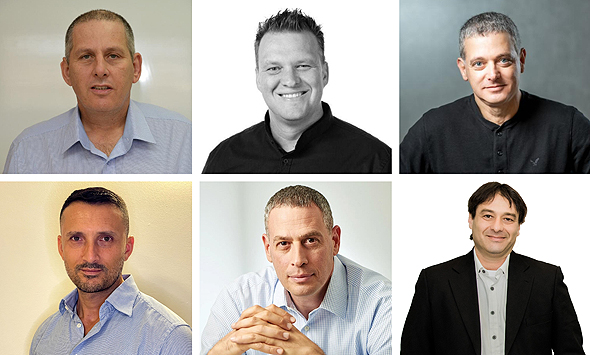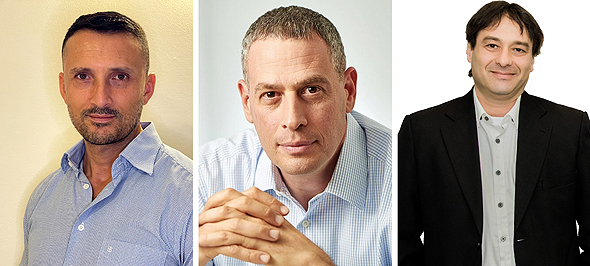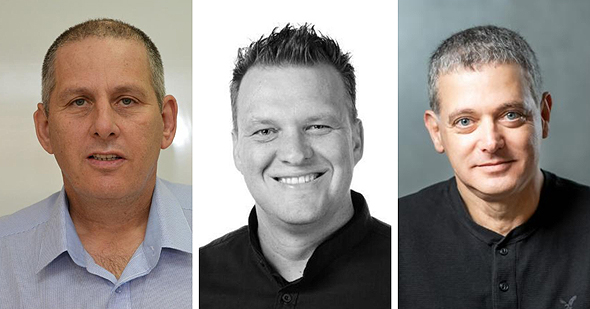An inside look at Israel’s incubator ecosystem
Whereas accelerators aim to speed up the process of a company’s growth, incubators are there from their birth
Accelerate, accelerate, accelerate. At least, that’s what entrepreneurs are told once they get their billion-dollar idea for a startup. While accelerator programs exist to speed up the growth stage of a company, Israel and its government take a unique approach to incubators - hubs that exist for companies to gain that initial boost to help them eventually get funding.
“If you talk about incubators in the states or in Europe, both will be incubators that would not inject capital,” explained Assaf Barnea, CEO at Sanara Ventures. “They would not become shareholders or board members like we are in Israel… They will be like WeWork offices. So there's a bit of confusion on what exactly incubators, globally, means. In Israel, it’s known as a prestigious program globally for being a hybrid model or for adding services like office space, business support, financial support, legal support, HR, to those early-stage companies.”

Sanara Ventures is one of the 19 state-sponsored incubator programs in Israel that effectively act as early-stage investment companies. Across the country, VCs and corporate companies get support from the government’s Israel Innovation Authority to fund and support entrepreneurs for 2-3 years while they work on the initial phase of their technologies. According to six VCs and executives who spoke to CTech, around half of those incubators focus primarily on Medtech and digital health services. Hundreds of companies apply each year to secure a space in incubator programs, around 70 of which are approved by the IIA.
“The incubator program started in the early 90s to support immigration from the USSR,” explained the Israel Innovation Authority’s Technological Incubators Program Manager Chai Avital. “So the incubators back then were mainly run by local authorities… They brought Russian immigrants and based on their ideas they started companies and helped them. It was the first generation of incubators and the reason why this program was started.” It was before the IIA was founded and at the time operated out of the Ministry of Economy and Industry.
For every dollar that incubators invest in startups - usually between $700,000 and $2 million - the IIA adds six times the amount, equalling a total divide in funding to roughly 85% government, 15% private incubators. The government has no equity or active role in the companies funded, only the financing to make sure they get a strong chance at success.
Hubs on the periphery
Many of the incubators in Israel can be found outside conventional tech hubs of Tel Aviv, Haifa, or Herzliya. In fact, the IIA said it hopes that these periphery areas will one day become hubs of their own. One incubator, i4Valley, operates in the north of Israel near the Sea of Galilee in a small town called Karmiel. Its CEO, Sivan Yechieli, says it is a deliberate attempt to help entrepreneurs be closer to industrial industries and assist in ‘Industry 4.0’ technologies.
- How are corporate VCs reshaping the Israeli tech landscape?
- Choosing an accelerator? This is what startups should look for
- How one startup is helping parents assess their children's development
- Bank Hapoalim to launch new investment track for startups
- The accelerator bringing together women entrepreneurs from across the Middle East
- Helping the body, soul, and world
- "We must build a bridge between hi-tech and the ultra-Orthodox"
- Helping the disabled regain their independence with a flick of a wrist
- Assaf Rappaport: "Israeli tech's glass ceiling is manpower, not money"
“Nothing is going to stop them from going to the United States or to Europe and I hope they will when their companies grow,” he told CTech. “But to begin with, at the very early stage, they have here the advantage of having design partners from the industry and immediate and quick access to most of the facilities they require. It’s not an accident that Silicon Valley started in Silicon Valley - it’s because the silicon industry was there.”
i4Valley was founded in July 2020 and its focus is on companies that can help in the fourth industrial revolution, widely expected to impact industrial industries. Its portfolio includes companies like Engini, KIINNS, and Aqualitas - typically companies that help with food and water safety, enterprise planning, or agriculture.
“A lot of times, such people will find it difficult to raise seed or pre-seed to start a company,” Yechieli said. “The incubator system enables them, in our case in the field of industry 4.0 but in other fields, to jump into the water and start swimming - and a lot of them swim. That’s an amazing investment from the country in early-stage entrepreneurs and eventually... even if they fail on the first try they will succeed if they persist.”

Another incubator residing in the periphery of Israel is NGT3, a Nazareth-based incubator that is “structured as a venture capital fund, focused on medical device and life science technologies.” It is one of the many incubators focused on those technologies, and yet it also carries with it a social agenda.
“Most of the VC firms in Israel are in the center of the country,” said its CEO Zohar Gendler. “The reason for this location is that we have a social agenda of Jewish and Arab collaboration. We are working very hard to promote Jewish Arab collaboration at all levels, from founders to employees and investors. We are building a total ecosystem. We believe very much in the economy and in working together that this will be the best way to solve the problems, and not politics.”
Each year, it invests in four or five companies that it believes will solve an issue in Simple Medical Devices, Medical Devices, Consumer Medical, or Pharmaceutical areas. Its 1,200 square-meter space can assist in technology/clinical areas, market research, intellectual property, regulatory, and HR.
Usually, incubators supported by the IIA receive a license for 8 years to foster relationships with young entrepreneurs. Trendlines received its current license in 2016, but the company has been operating in Israel’s incubator space for 13 years. In that time, it has built a portfolio of 58 companies - 13 of which are in Singapore and the rest in Israel - to help with the development of agtech and medical companies in search of experienced and talented guidance.
“Many talented entrepreneurs have great ideas,” says its CFO Haim Brosh. “As an investment company that owns and operates incubators, Trendlines offers more than a cash investment. The incubator model offers entrepreneurs the capabilities and deep support required to turn their brilliant ideas into commercially viable companies – technological, business, financial, and marketing knowledge – are all part of the professional experience we provide to ensure the best chance of success in transforming an idea into a startup.”
Community connection
Trendlines is also located near the Galilee in a town called Misgav although it also has an office space in Ramat Gan if it ever needs a space for meetings and delegations. Bank Hapoalim, one of the country’s leading banks, ensures that it maintains a sense of connection and community for companies and incubators based out of Israel’s periphery locations.
“I’m working at the Yokneam branch, this is really not the center of the country. You’ll have a different kind of customer here,” said Roi Tal from Bank Hapoalim. “The difference is in all geographical areas, it’s a different approach from the bankers who work with the local businesses or high-tech community… we need to take ourselves and build communities and hope and work on it.”
Tal has been at Bank Hapoalim for 15 years and based at its Yokneam branch since 2015. There, he works to connect banks, VCs, entrepreneurs, and startups together in ways that fans of the high-tech world might be used to in Tel Aviv’s Sarona Market or Rothschild Boulevard. “We need to build the community that people will hear about and meet all the time with hubs, accelerators… and then when we work with the people, we do introductions both sides to high tech startups and they need leads, we need leads, so it’s a win/win for both sides.”

What started as ‘The Morning Breakfast Club’ by 12 people meeting at a cafe soon turned into meetups with more than 300 people. Medical, healthcare, and bioscience companies who are located in the north can gain value from incubators with close ties to Haifa University or the Technion - something that Bank Hapoalim says it can help with.
“Five years ago, most of the incubators managed their own companies and didn’t have a connection to the area, different companies, and what was happening around them,” Tal explained. “I think they are now part of the community, they also do meetups and they want to be a major player in the area and to influence the geographical area.”
It’s the center, stupid.
Not all agree. While the IIA’s hope is that these incubators ultimately create technology hubs across the country, Sanara Ventures’ Barnea says that until additional infrastructure is built - such as transport or accommodation - companies will eventually graduate from incubators and migrate to city centers.
“Even if they start to be successful after the first 2-3 years, in most cases (companies are) moving back to Haifa or Tel Aviv to settle,” he said. Sanara Ventures is based in Raanana, only a short drive from tech hubs like Herzliya, and he believes that more needs to be done to foster the ecosystem environment.
“As they say, ‘it takes a village’,” he said. “You need to have an ecosystem around it in order to make sure that innovation is successful and successfully materializes into economical growth.”
Despite this challenge, Barnea credits the IIA and the “truly amazing” job it’s doing in helping prevent companies leaving periphery areas once they finish and search for more investment. “I think the IIA is doing a great job and I think also the adjustment we are trying to make now in the industry is how to bridge some of those financial gaps. The post-incubation, the value of that. This is something that needs to be addressed - the value of a post-incubation investment,” he added.
Incubators into hubs
Regardless of where these incubators are based, it’s clear they all have one clear goal: to foster the innovation that is born from entrepreneurs and spread it around the country. So far, it is working. The IIA’s Avital told CTech that incubators have an important role outside of acting as seed investors, and should focus on creating environments and industries that eventually turn into hubs of their own. The Kitchen Hub, he said, was the country’s first foodtech incubator. Based in Ashdod, it brought companies to the region and eventually created the foodtech industry in the country.
“The incubators' main goal is to become a hub, a focal point to connect all the dots,” Avital concluded. “Our hope is that the startups will want to stay there because of the hub, the connections to the dots, because it will be good for them to be there, and all the connections they can have for being there.”



